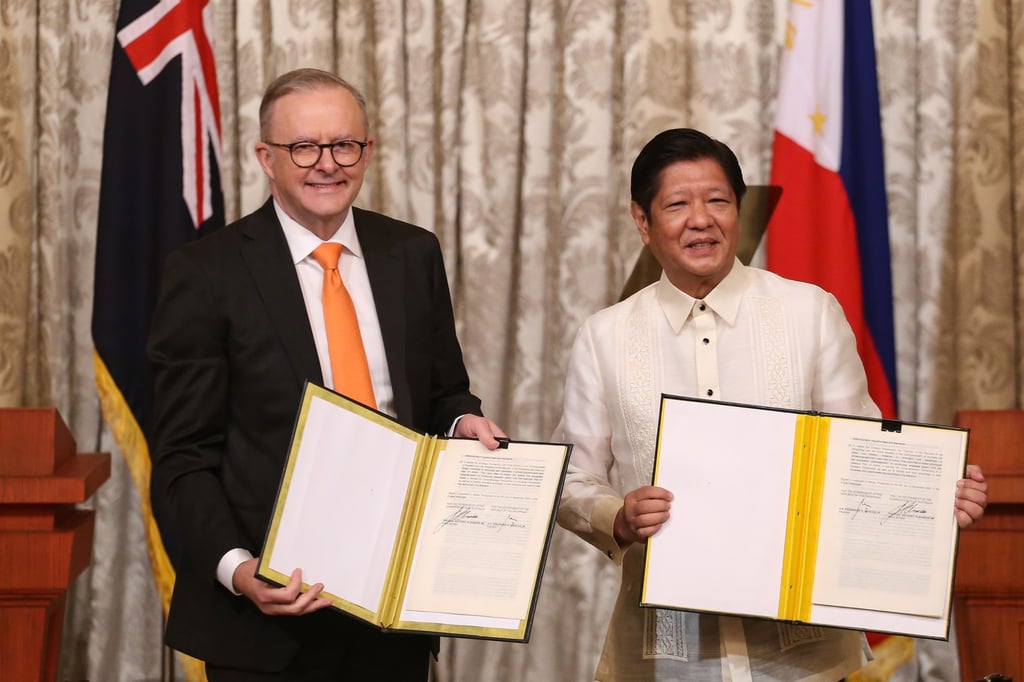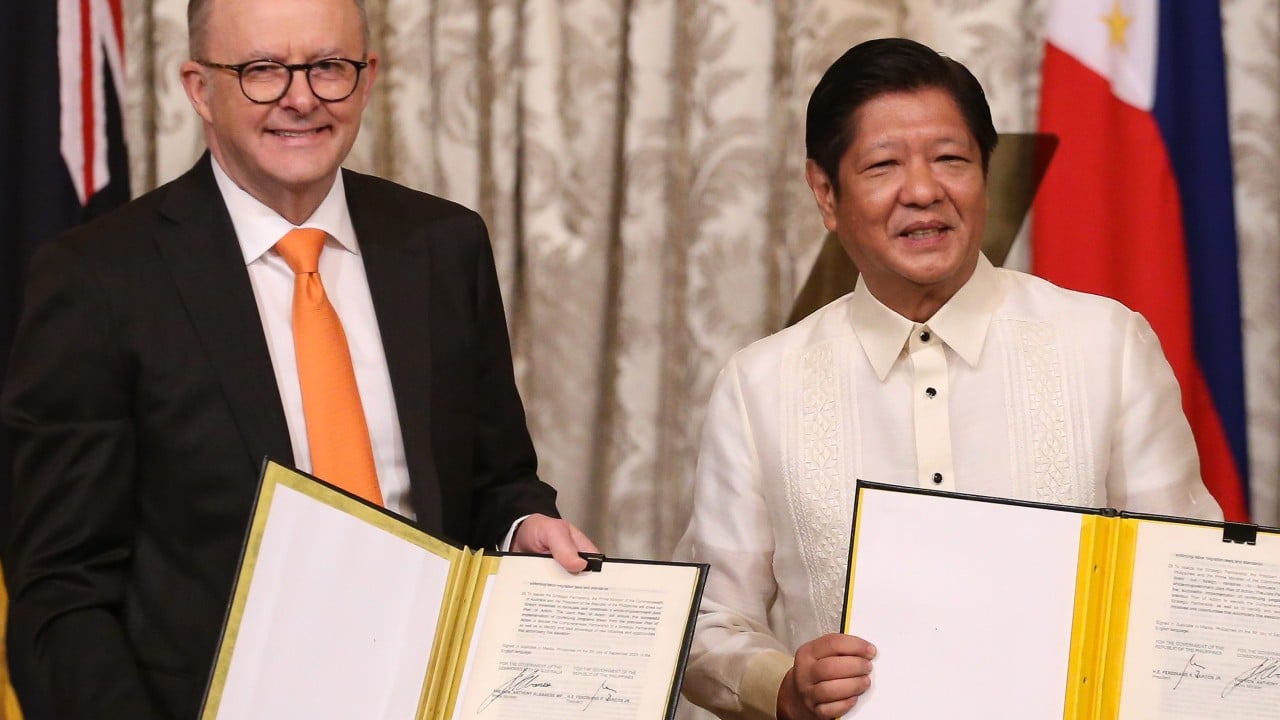As the Asia-Pacific’s power dynamics continue to evolve and shift, Australian Prime Minister Anthony Albanese’s visit to China promises to be a test of his country’s ability to walk the fine line between economic self-interest and strategic resolve.
Advertisement
His trip, which began on Saturday, unfolds against the backdrop of Australia’s deepening security ties with the Philippines, with Canberra stepping up support for Manila’s maritime capabilities and increasing participation in patrols and joint military exercises.
In April, Albanese’s government donated 20 state-of-the-art surveillance drones worth 34 million pesos (US$600,000) to the Philippine Coast Guard, buttressing its maritime domain awareness just days after a near-collision between Philippine and Chinese vessels in contested waters.
The donation was part of a broader civil maritime cooperation programme, encompassing vessel remediation, postgraduate scholarships, operational training, marine protection and maritime law seminars. Australia plans to double its investment in these initiatives to A$11.5 million (US$7.5 million) from 2025 to 2029.

Analysts say these moves reflect the pair’s expanding ties over time. “Australia and the Philippines are set to mark 80 years of diplomatic relations in 2026, with both countries motivated to further enhance the strategic partnership in the years ahead,” said Julio Amador, interim president of the Philippines-based Foundation for the National Interest think tank and founder and trustee of the non-profit policy advisory firm FACTS Asia.
Advertisement

